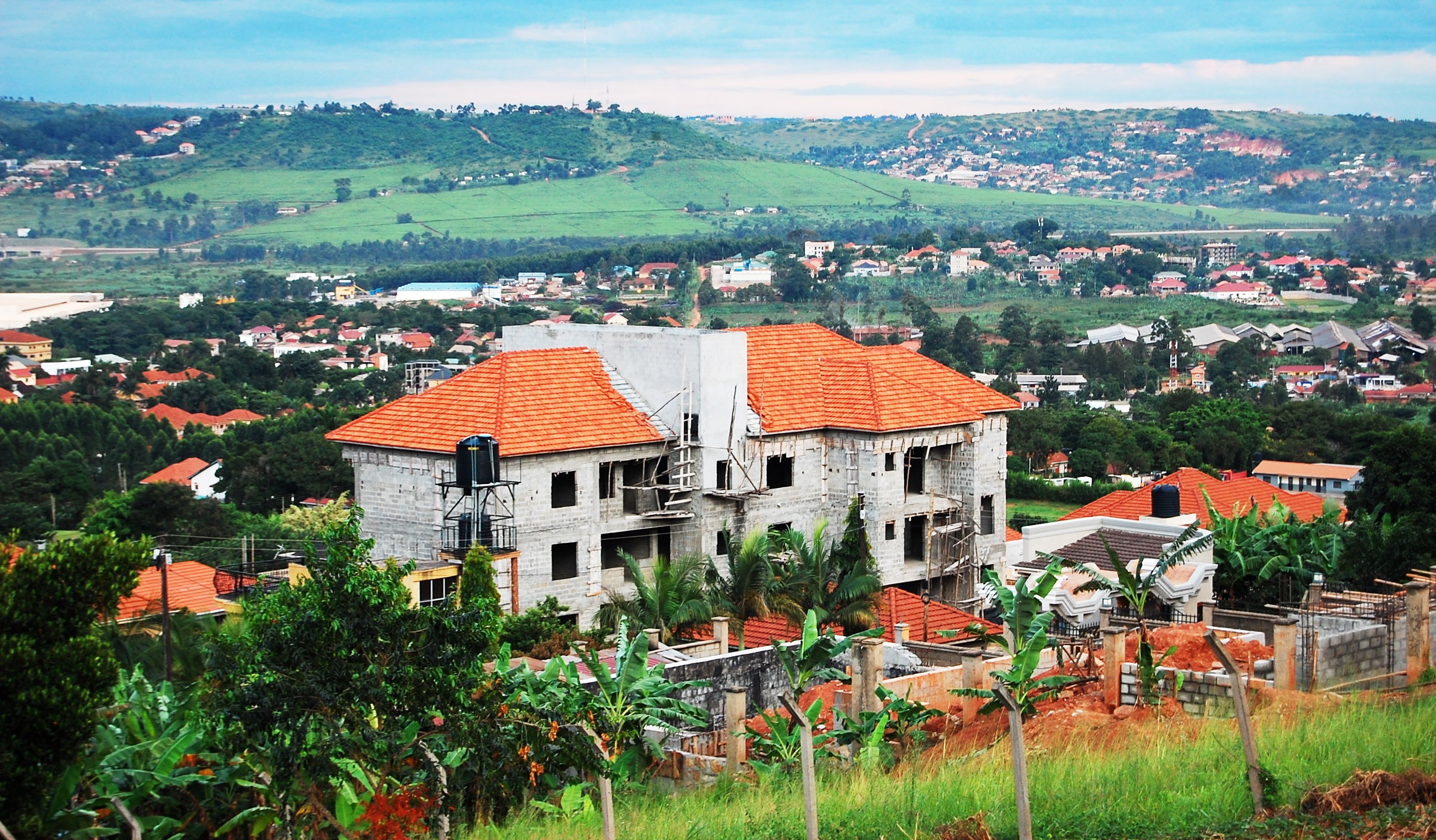Govt to digitise land registry in one year

Mbale residents cut down tress on a disputed piece of land in the Mountain Elgon National Park in 2017. They accused Uganda Wildlife Authority of grabbing their land. Inset is Lands minister Judith Nabakooba addressing journalists in Kampala October 3, 2023. PHOTO/PETER SSERUGO
What you need to know:
- The government says the move, which has stalled for almost a decade, will curb double titling and fraud in land-related transactions.
The minister of Lands, Housing and Urban Development, Ms Judith Nabakooba, has said the government needs at least a year to finalise the process of digitising the national land registry.
Addressing journalists in Kampala yesterday, Ms Nabakooba said the Lands ministry together with other partners in the registry digitisation process are currently working on uploading the old manual land specifics into the digital system database, a process that would take twelve months.
“Our aim is to upload all the old information into the system and we are giving ourselves like a year to ensure that all the old information is being uploaded. After this, we shall look at ways of safeguarding and strengthening the registry,” Ms Nabakooba said.
She further noted that a number of land fraud cases like double titling and plotting have been as a result of the government’s inability to have in place a harmonised land information system, which can detect fraud at an initial stage.
“I believe that once we digitise all our [land] records, then we shall be in position to sense fraud, forgeries and all other anomalies like double plotting or titling because we shall always be getting notifications and alerts whenever a registrar is trying to effect a transaction,” she said.
As part of the efforts to ease access to land information, the government in 2013 [ten years ago] started adopting a digital format of land registry, which included documenting all information about land such as its location, ownership, and uploading activities and the physical infrastructure.
The government contracted IGN-France International, a French mapping company, to develop a digital registration system, which was installed at the Lands ministry premises between December 2012 and March 2013.
However, since 2013, only a few processes can be accessed online by the public. These include; downloading of land transaction forms and checking the status of the land transaction.
Others are; accessing a map displaying one’s plot and doing an online search plus paying using mobile money services.
Mixed reactions
Ms Justine Nassazi, a teacher and resident of Makindye Division, Kampala, said: “Digitisation is good for easy access of information but as a country, I think we are yet to embrace the digital spaces given that even majority of the land owners cannot navigate the digital world without any hurdles.”
Mr Robert Mukwaya, a landlord and resident of Namayumba Sub-county, yesterday said: “Digitisation of the land registry can only be a solution to land wrangles if the local communities are sensitised about it. But if it is left in the know of the country’s big wigs, then fraudulent people will still take advantage of the people’s ignorance to grab their land.”
Mr Rajab Kasule, property dealer in Kireka, Kira Municipality in Wakiso District, agreed with Mr Mukwaya on the need for sensitisation.
Mr Kasule added:“In Uganda everything must first work to appreciate it. Just wait, you will realise that the same people who are developing the digitisation system will be the first to be implicated in land scandals related to system alterations.”
Meanwhile, Ms Nabakooba used the same press briefing to announce the second Uganda National Housing Symposium and World Habitat Day 2023, which will be marked on October 5, under the theme; ‘‘Resilient Urban economies; cities as drivers of growth and economic recovery’’.
She said: “The symposium will provide a venue for showcasing and discussing innovative solutions to accessible, inclusive, affordable and decent housing as well as offering a platform for addressing cross-cutting problems in the housing sector.”
Equally, the symposium is expected to breed partnerships between the government and the private sector to develop appropriate designs and technologies to address the housing shortage in the country.
Mr Robert Otim, the national director of Habitat for Humanity Uganda, revealed that about 67 percent of Uganda’s population is living in informal settlements. He called for the establishment of affordable housing units to accommodate Ugandans.
“The need for affordable housing is pushing millions of urban residents into informal settlements and this shows that more than ever, the urgency for us to focus on affordable housing is now,” Mr Otim said.
Uganda is currently facing a housing deficit of more than 2 million housing units, while 900, 000 housing units are below standard, according to Habitat for Humanity.





